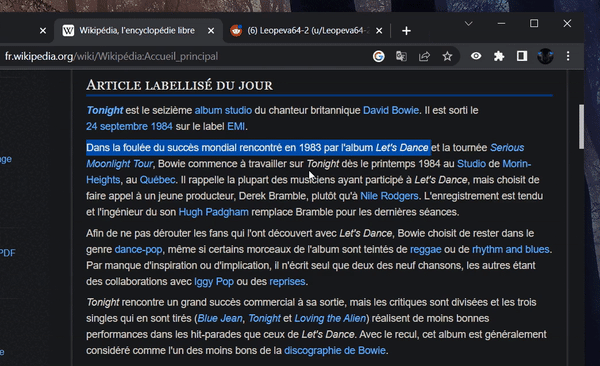[unable to retrieve full-text content]
Research on Automatic Correction of Human Translation Wins Award SlatorMonday, July 4, 2022
Saturday, July 2, 2022
Opinion: Mind your P'S & Q's, tomahtos-tomaytos - Economic Times - Dictionary

In my younger years, something like this would have been calamitous. Pronunciation was a weapon in high school -- used to attack the lack of sophistication of any poor soul that uttered an English word incorrectly. With the benefit of all the intervening years, and with exposure to many non-English speakers who have attained distinction in their chosen profession in English-speaking countries, I understand now that improper pronunciation is not really a reflection of anything - other than the inability to remember the confusing rules, or the unwillingness to conform to the demands of the language.
In most instances, it lays bare the inconsistent structure of the language. 'It's not me, it's you,' seems to be an apt response to the English Language at every pronunciation stumble, a turnaround of the classic relationship-ender line. Another tangential validation comes from William Strunk Jr, a Cornell University English professor whose claim to fame is his 1920 textbook, The Elements of Style. Strunk is remembered for exhorting his students: 'If you don't know how to say a word, say it out loud!'
Any missive about the inconsistencies in English spelling and pronunciation is incomplete - at least for a Hindi movie fan - without reference to the immortal dialogue from the 1975 Hrishikesh Mukherjee movie Chupke Chupke. In that unforgettable scene, the multiple-degree-wielding rich old man is made hapless by this question from the young professor who is masquerading as an uneducated driver: 'If T-O is pronounced as 'too' and if D-O is pronounced as 'doo' then why isn't G-O pronounced as 'goo'?' - which is, of course, 'poo' in Hindi.
The absurdity of the English language is recognised even by its keeper of its rules -- the dictionary. The Guide to Pronunciation section (online version) of the Merriam-Webster dictionary has this to say: 'For some languages, such as Spanish, Swahili, and Finnish, the correspondence between orthography and pronunciation is so close that a dictionary need only spell a word correctly to indicate its pronunciation. Modern English, however, displays no such consistency in sound and spelling, and so a dictionary of English must devote considerable attention to the pronunciation of the language.'
It does acknowledge the frustration of the user: '[T]his disparity between sound and spelling is just a continual nuisance at school or work.' One marvels at the amount of energy the keepers of the English language must expend to prop up all the contradictions in pronunciation with labyrinthine rules that require the good graces of the brain's memory centre as much as its seat of language.
The one segment that benefits is the industry that makes money off 'teaching' the proper use of English -- 'spoken English' centres, writing guides, grammar-checking services. There's even a kid's competition in the US which is considered a national institution: the annual Spelling Bee. The first prize is $50,000, and the past 20 out of the 25 winners have been of Indian origin. Do immigrant parents, carrying with them the burden of memories of their own high-school pronunciation mishaps, train their kids to be perfect spellers the way others make their children pursue music or sports?
Experts on communication extol the virtues of clarity, brevity, and conviction. What irony that the tool most sought after to achieve these ideals is as unwieldy as the English language. Recently, a friend loaned me Jared Diamond's book, Guns, Germs, and Steel, which argues that one major cause of western Europe's dominion over the globe was its long history of complex societal structures that were necessitated by the agrarian economy. Could the ability to hold a civilisation together with a language that has head-scratching rules be one of the reasons as well?
The writer is managing director,
Laboratories, BengaluruFriday, July 1, 2022
How to build a language: inside the Oxford English Dictionary - Audio Long Reads - The New Statesman - Dictionary
The New Statesman’s Pippa Bailey has long had a professional as well as a personal interest in the OED: she and the team of sub-editors she leads rely on the world’s most comprehensive dictionary to answer questions of meaning and spelling. So it was a labour of love when she visited its Oxford HQ to meet the lexicographers whose decisions – about which words are added, revised, or rendered obsolete – help shape the world’s most-spoken language.
In this richly researched and beautifully observed deep dive, Bailey charts the course of the dictionary from its mid-19th-century origins to its most recent “new words” update (“terf”, “stealthing” and “sportswashing” were among the June 2022 inclusions). She visits the archive and hears from the specialists hard at work on the dictionary’s third edition – a job that began in 1994 (and the OED is still only halfway revised). Should they trace the first written use of “burner phone” to The Wire, or further back to a 1996 rap by Kingpin Skinny Pimp? Should they add the phrase “very traffic”? And why is it so hard to tell the origin story of “bucket list”?
This article first appeared on newstatesman.com on 22 June and in the magazine on 24 June 2022. You can read the text version here.
Written by Pippa Bailey and read by Emma Haslett.
You also might enjoy listening to How the trial of the Colston Four was won by Tom Lamont.
Podcast listeners can subscribe to the New Statesman for just £1 a week for 12 weeks using our special offer. Just visit newstatesman.com/podcastoffer.
How to listen to Audio Long Reads
1. In podcast apps
Audio Long Reads is available to listen on all major podcast players, including Apple Podcasts, Spotify, Google Podcasts, YouTube and more.
Either click the links above to open in your preferred player, or open the podcast app on your device and search for “Audio Long Reads”.
Follow or subscribe in your podcast app to receive new episodes as soon as they publish.
2. On the New Statesman website
The podcast is also available to listen right here on the New Statesman website. Bookmark https://ift.tt/dAW1Q2i, where we will publish new episodes every Saturday morning.
3. On your smart speaker
If you have an Amazon Echo, Google Home or Apple HomePod, ask it to “play the latest episode of Audio Long Reads from the New Statesman”.
The command will also work on other smart devices equipped with Alexa, Google Assistant or Siri.
Content from our partners



Google Chrome set to expand translate options to include selected text, more languages - 9to5Google - Translation
Google Translate makes it easier to peruse the web without running into the language barrier, but sometimes the all-or-nothing approach of Google Chrome’s built-in Translate integration can be the wrong way to handle it. Now, Google Chrome is preparing the ability to translate selected text.
As spotted by Leopeva64 on Reddit, Google Chrome is currently testing out a new ability to translate “partial” text on a webpage. Specifically, it will be able to translate text highlighted on the page by the user.
Today, Chrome has built-in translation, but it applies to the page as a whole, rather than just bits on the page. This generally works out fine, but may not be ideal for pages that only have certain portions in another language.
It also only works in a single language, translating pages from whatever language is displayed to the user’s preferred, but single language.
A new “bubble” UI in Google Chrome appears in the omnibox (address bar) and can translate text as it is selected on the page. This can be accessed either by pressing that button in the omnibox, or right-clicking the text and pressing “translate to.” The new UI also has an option to “translate full page.”
Right now, this isn’t a functional feature, as it doesn’t actually translate the text, but we can see where Google is going with this.

The other big perk to this revamped translation experience is that you can more easily switch between languages. As it stands today, changing the translation language requires digging into settings and adding more languages.
With this new experience, Google Chrome will present alternate languages front and center, with a full list of everything Google Translate has to offer in a scrolling list.

This feature is live – but not functional, as mentioned – in the latest Chrome Canary update. It should make its way to stable builds over time, but it remains to be seen exactly when.
More on Google Chrome:
Check out 9to5Google on YouTube for more news:
Legal Settlement Requires Chicago To Offer Translation Services To Parents Of Students With Disabilities - Block Club Chicago - Translation
CHICAGO — It took Maggie Przytulinski seven years to get her younger brother, Mark, the help he needed in school.
Przytulinski said Mark, who hasautism, Down syndrome, and is non-verbal, had an Individualized Education Program, or IEP, a legally binding document that outlines the services for students with disabilities. It requires multiple meetings every year and a significant amount of legal paperwork.
Adding to the complexity? Przytulinski’s Polish-speaking mother knows only basic English.
Przytulinski, who speaks both English and Polish, said she often found herself taking on the role of translator in the IEP process.
“It was difficult because not only I had to fight for the service for my brother and place him in the appropriate placement,” Przytulinski said, “but at the same time, I had to translate for my mom.”
That should no longer be the case, thanks to a legal settlement reached earlier this month between Chicago Public Schools and a group of families, including Przytulinski’s. It will guarantee language interpretation services to the families of students with disabilities. The Illinois State Board of Education reached a similar settlement late last year.
The settlement mandates Chicago Public Schools provide language translation services for non-English speaking parents at all IEP meetings, which are required by federal law for students with disabilities who are receiving services.
Under the settlement, CPS also agreed to hire 10 full-time certified interpreters or translators, five of whom will serve only in those roles and provide translated versions of documents including reports, evaluations, and recommendations within 30 days of IEP meetings.
Parents can also request the interpreter not be a part of the IEP team. It can be difficult for interpreters to be impartial if they are playing a dual role, which makes the provision a critical component of the settlement, said Olga Pribyl, program vice president of the special education rights clinic at Equip for Equality.
CPS does not comment on settlements, but is committed to ensuring that the needs of students with disabilities are met and will continue to work with ISBE, staff, and parents to provide the best educational experience and opportunities, according to a district spokesperson.
Equip for Equality has been working on the challenges faced by families for years. Pribyl said the advocacy group tried to resolve the problem directly with the state and district.
“We alerted both the State Board of Education and Chicago Public Schools about our concerns with language access issues before we filed the complaint,” Pribyl said. “We had discussions with them, so it’s something that we were hoping we could resolve collaboratively.”
In January 2018, Equip for Equality and Kirkland & Ellis filed a class-action lawsuit on behalf of more than a dozen families, including Przytulinski’s.
Grant Jones, litigation associate at Kirkland & Ellis LLP, represented the families. The case was personal for him, he said, as a former sixth grade English teacher and the child of an immigrant whose first language was not English.
Jones said it took time and creativity to structure a settlement that all parties could agree on. But in the end, he said, he felt everyone had the same goal: to help students and their families access the services they needed to meaningfully participate in IEP meetings.
For the next two years, CPS must file reports each semester to show they’ve complied with the settlement. ISBE will also propose regulations to make sure qualified interpreters and translated documents are provided in districts across the state.
Although federal law requires family members be included in IEP meetings, it does not specify details such as which documents must be translated for families.
“It’s hopefully some precedent that we can set to maybe make changes even further outside of Chicago and Illinois,” Jones said.
The case was dismissed without prejudice, meaning that if CPS and the ISBE do not comply, the plaintiffs can bring the lawsuit back, Jones said. Pribyl encouraged families who do not receive language interpretation and translation services to contact Equip for Equality.
Przytulinski’s brother is now 22. Mark attended CPS schools from preschool until age 14, when he transitioned to a private day school for students with similar disability-related needs, according to Amanda Klemas, senior attorney in the special education rights clinic at Equip for Equality. Przytulinski said she and her mother had to push the district to allow him to attend the therapeutic day school, where CPS covered tuition – a service the district sometimes provides for students with severe disabilities.
She said she’s happy to know it will now be a little easier for families like hers to get the help they need.
Eileen Pomeroy is a reporting intern for Chalkbeat Chicago. Contact Eileen at epomeroy@chalkbeat.org.
Chalkbeat is a nonprofit news site covering educational change in public schools.
Thursday, June 30, 2022
'A historic day': Northwest BC First Nation creates dictionary to save Witsuwit'en language – Terrace Standard - Terrace Standard - Dictionary
 The Official Witsuwit’en-English Dictionary was released June 17. (Witsuwit’en Language and Culture Society photo).
The Official Witsuwit’en-English Dictionary was released June 17. (Witsuwit’en Language and Culture Society photo).

As a result of colonization and forced assimilation, multiple Indigenous languages in the country are on the verge of extinction.
The Witsuwit’en Language & Culture Society is one group fighting to preserve their language.
On June 17, the society launched the Official Witsuwit’en-English Dictionary with a clear goal in mind: increase the number of people fluent in Witsuwit’en, Lucy Gagnon told Black Press Media.
“We have about three per cent of our nation that are fluent speakers.
“That adds up to about around 100 speakers, and for a nation of about 3,500, that’s very, very sad. So that’s been our goal, and the dictionary is one piece of the puzzle.”
Babine–Witsuwit’en or Nadot’en-Wet’suwet’en is an Athabaskan language spoken in the Central Interior of B.C.
Gagnon says in 1988, a group of elders and fluent speakers began the dictionary with assistance from Sharon Hargus, a professor at Washington University. After many years of drafts and reviews, it was decided that the dictionary would be released this year.
The Witsuwit’en Hibikinic contains contributions by generations of native speakers, an extensive cross-referencing system and an English index to support users.
It also has many illustrations, diagrams and photos.
The book was incredibly well-received during a recent launch event, with a buzz of excitement from those in attendance.
“It was amazing. It was a historic day. We had all of our language speakers, fluent speakers sitting around the head table, and there’s not a lot left. But just the excitement in people. We handed out 420 dictionaries in one day,” Gagnon said.
The first event was for those in Hagwilget and Witset First Nation, with a second event being planned for Wet’suwet’en First Nation, Ts’il Kaz Koh, Nee Tahi Buhn, and Skin Tyee.
According to data collected by the society, the rate of Witsuwit’en fluency went from 3.6 to 3.3 per cent since 2016, mostly due to several Elders passing on.
The average age of fluent speakers is 70 years old.
Currently, the society has 10 adult students learning Witsuwit’en. They will be graduating in late July.
The dictionaries will be available at the next event for Wet’suwet’en First Nation, Ts’il Kaz Koh, Nee Tahi Buhn, and Skin Tyee, with priority being the Witsuwit’en Membership.
After that it will be $125 upon availability.
An online version of the dictionary can be found at niwhkinic.ca.
Indigenous
Wednesday, June 29, 2022
Piquet Apologizes for Calling Hamilton Racial Slur, Says Translation 'Is Not Correct' - The Drive - Translation
The three-time F1 champ claims he would never “belittle a driver because of his skin color.”

Former Formula 1 racing driver Nelson Piquet has apologized for comments he made about Lewis Hamilton during a podcast interview in 2021, which surfaced earlier this week. Wednesday, the Brazilian racer issued a statement to apologize and deny any racial intent behind his words. The three-time F1 champion claims, however, that the translations divulged in the media are simply not correct.
As our own Hazel Southwell covered yesterday, Piquet appeared on the Brazilian YouTube channel Folha de Sao Paulo last year, where he referred to Hamilton as "neguinho," (a Brazilian Portuguese word that literally translates to English as "little black"). Southwell's own discussions with other Brazilians revealed that while the exact intent of translation may differ amongst people, "all of them agreed it was racist and intended to be that way."
Piquet would disagree, claiming that the term has historically been used in Brazilian Portuguese to describe a "guy" or "person."
“It was ill-thought-out, and I make no defense for it”, Piquet said, according to Autosport. “[The term] is one that has widely and historically been used colloquially in Brazilian Portuguese as a synonym for ‘guy’ or ‘person’ and was never intended to offend. I would never use the word I have been accused of in some translations.
“I strongly condemn any suggestion that the word was used by me with the aim of belittling a driver because of his skin color," said Piquet. “I apologize wholeheartedly to anyone that was affected, including Lewis, who is an incredible driver. But the translation in some media that is now circulating on social media is not correct. Discrimination has no place in F1 or society and I am happy to clarify my thoughts in that respect.”
Hamilton has yet to issue a statement following Piquet's apology, with the seven-time world champion's Twitter feed only showing his previous thoughts on the matter, claiming that this recent attack "is more than language. These archaic mindsets need to change and have no place in our sport."
Teams and drivers across the paddock have publicly voiced their support for Hamilton and condemned any racist behavior portrayed by Piquet, including Mercedes, Ferrari, even F1 itself, as well as the FIA. One team that's remained mum on this issue is Red Bull Racing, whose lead driver Max Verstappen is currently in a relationship with Kelly Piquet, Nelson Piquet's daughter.
It's former F1 champ Damon Hill, however, who likely made the strongest rebuke of Piquet's comments, going as far as comparing the Brazilian with former Red Bull academy driver Juri Vips, and saying that action must be taken against the Brazilian.
“I’ve always felt Nelson was a bit of an acquired taste, and I didn’t really acquire the taste,” said Hill to Motorsport.com. “You’ve got Juri Vips as well - swift action has been taken against Juri. We have to be sure that the sport is not just nodding in the direction of political correctness. It has to be absolutely clear.
"For a long time, I’ve wished that the sport upheld and made it abundantly clear that it upholds certain values. But the argument against that was they couldn’t be political. That’s what their response was, it was we’re not a political organization, we can’t. But this is not politics. This is decent human values. And surely a sport should be about those things," added Hill.
Got a tip? Email us at tips@thedrive.com
MORE TO READ